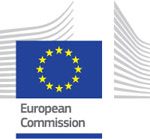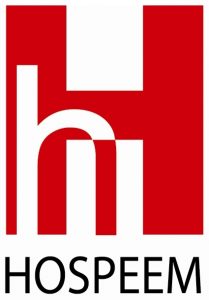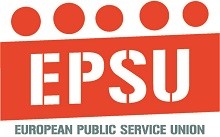HOSPEEM-EPSU Project 2017-2018 on effective recruitment and retention policies
In 2017-2018 HOSPEEM and EPSU have been provided with financial support from the European Commission for a joint project in the field of recruitment and retention entitled: “Promoting effective recruitment and retention policies for health workers in the EU by ensuring access to CPD and healthy and safe workplaces supportive of patient safety and quality care” (01.02.2017-01-01-2019).
Objectives
The project provided an appropriate framework to continue to focus on continuing professional development (CPD) as a first joint policy priority for HOSPEEM and EPSU. The work served to collect, discuss and evaluate social partner-based initiatives and policy measures on a range of aspects linked to the aim of facilitating access to CPD and guaranteeing quality services supportive of patient safety and provided by a workforce fit for practice. It will build on the HOSPEEM-EPSU Joint Declaration on Continuing Professional Development and Life-Long Learning for All Health Workers in the EU.
The project was secondly geared towards the follow-up to results and recommendations of the HOSPEEM-EPSU joint project (2014-2016) in the field of occupational safety and health (OSH). The prevention, management and reduction of “musculoskeletal disorders” (MSD) and “psychosocial risks and stress at work” (PSRS@W) have been identified by HOSPEEM and EPSU members as two key priorities for their future joint work. In June 2016 they agreed on a “Summary Document” – available in EN, FR, DE, ES, RU and SV, setting out a number of follow-up activities to support policy implementation EPSU and HOSPEEM have agreed to consider in a next step. In May 2019, HOSPEEM and EPSU members agreed on the “summary document” of the project 2017-2019 “Promoting effective recruitment and retention policies for health workers in the EU by ensuring access to CPD and healthy and safe workplaces supportive of patient safety and quality care” (2017-2019).
![]() Download project detailed description
Download project detailed description
Timeline:
- 1 & 22 February 2017, Brussels: Meeting of HOSPEEM and EPSU Secretariats
- 28 February 2017, Brussels: Kick-off meeting of the Steering Groups 1(CPD) & 2(OSH)
- 19-20 June 2017, Amsterdam: Social partners’ conference on CPD, Amsterdam
- 10 October 2017, Brussels: Meeting of Steering Group 1 (CPD)
- 11 October 2017, Brussels: Meeting of Steering Group 2 (OSH)
- 23-24 May, Vilnius: Social partners’ conference on OSH, Vilnius
- 5 April 2018, Brussels: Meeting of the Steering Group 2 (OSH)
- 12 November 2018, Brussels: Meeting of the Steering Group 1 (CPD) & 2 (OSH)
- 03 December 2018, Brussels: Social partners’ dissemination workshop on OSH and CPD, European Parliament
Expected results
The project produced a report from each conference and a brief document summarising the main insight, conclusions and recommendations of the project. The information collected, the project results and recommendations will be fed back into the regular work of the Sectoral Social Dialogue Committee for the hospital/health care sector (SSDC HS) to be further discussed and assessed, in particular in view of their use to influence EU-level policy making.
Implementation
Conference on Continuing Professional Development, 19-20 June 2017
This first conference took place on 19-20 June 2017 in Amsterdam (co-organised by NVZ and Dutch partners, supported by HOSPEEM).
Conference on Occupational Health and Safety (Musculoskeletal Disorders and Psychosocial Risks and Stress at work), 23-24 May 2018
This second conference took place in Vilnius on 23-24 May 2018 (co-organised by LSADPS and supported by EPSU).
Dissemination
Social partners’ dissemination workshop on OSH and CPD, 3 December 2018
This dissemination workshop took place in Brussels on 3 December 2018 (organised by HOSPEEM and EPSU, hosted by MEP Jana Žitňanská, ECR, Slovakia and MEP Brando Benifei, S&D, Italy).
EPSU also has set up a page with the project-related information.
 This project has received funding from the European Commission
This project has received funding from the European Commission



Recent Comments